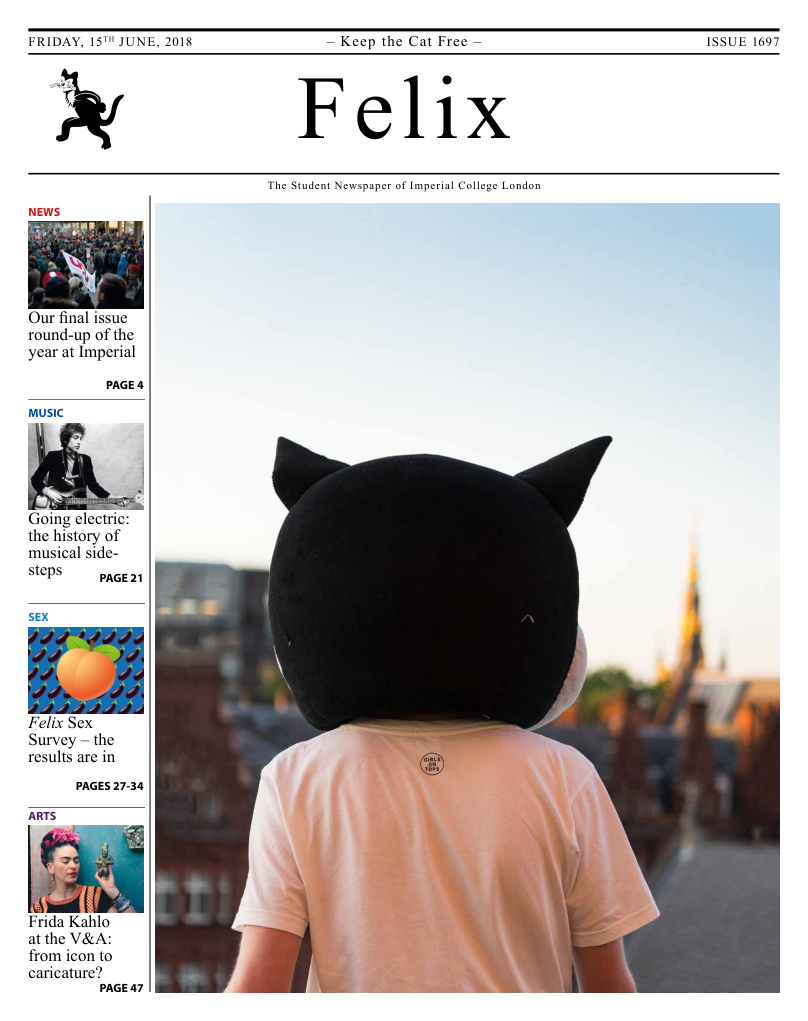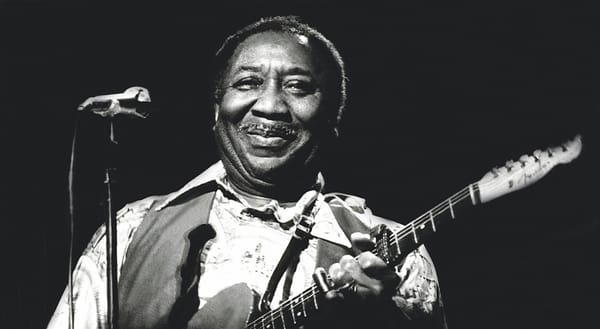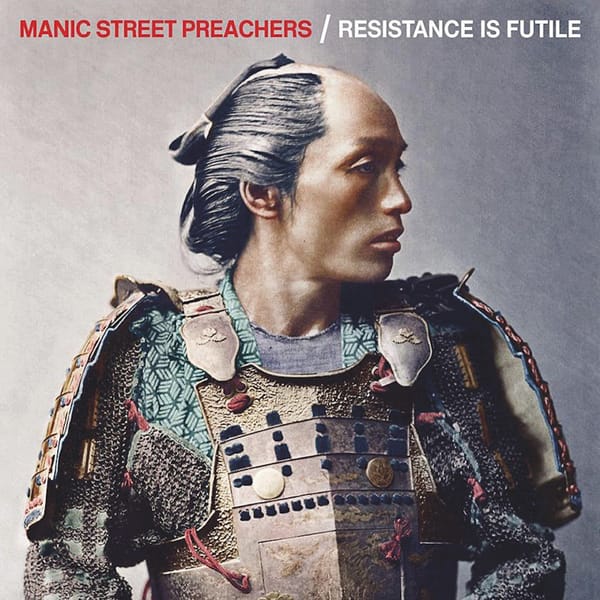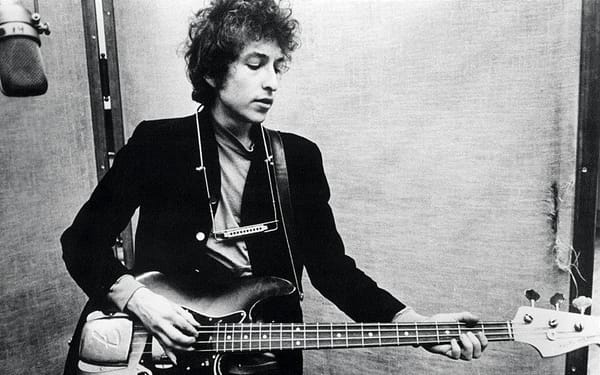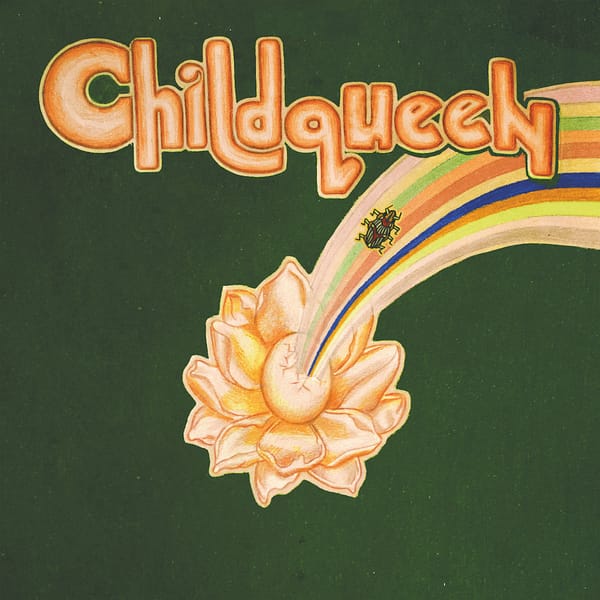Man on Blonde: a masterpiece revisited
Music Writer Ben Man takes a look back at Frank Ocean’s thoughtful, experimental, beautiful Blonde, nearly two years on from its release.

The artist known as Frank Ocean, born Christopher Breaux, was born and raised in New Orleans, Louisiana. He studied English at New Orleans University, writing music on the side, before Hurricane Katrina destroyed his studio and uprooted his life. Ocean made the decision to move to Los Angeles to fully pursue music, earning a song-writing deal, penning lyrics and melodies for other artists before joining up with the OFWGKTA (Odd Future) hip-hop/art collective and signing a contract with Def Jam records. He then released the highly acclaimed Nostalgia, Ultra mixtape in 2011, before working on other music including songs on Kanye West and Jay-Z’s Watch the Throne and Beyoncé’s Beyoncé. In the midst of Ocean’s momentous rise to success, he released an open letter on his Tumblr account recounting his unrequited love for a male friend one summer when he was 19 years old. He released the Grammy-winning album Channel Orange in 2012, and then – after a four-year silence – Ocean released the visual album Endless, and the album Blonde.
I’ve been regularly listening to Blonde for the past 18 months. The album never gets stale: Ocean has packed so many ideas into 17 songs that each listen reveals another layer of musical and lyrical content. In terms of sound, the atmospheric, sometimes ethereal Blonde contrasts to the cinematic, more accessible Channel Orange. The mood of the album is melancholy, reflective, and introspective.
Previous reviews of Channel Orange said Ocean has pushed the boundaries of R&B, causing him to state his dislike for such a label, saying it’s “inaccurate when you’re making music inspired by so many different things”. Moving forward, Blonde completely transcends classification. A flowing channel of collaborators runs through the album, with Ocean melding them together to create a sound that fits his vision. The collaborators aren’t given the spotlight, but are mostly used akin to session musicians: Radiohead guitarist Jonny Greenwood provides swelling string arrangements on ‘Seigfried’, Beyonce adds her backing vocals to a harmonic orchestra of voices at the end of ‘Pink + White’, Andre 3000 of Outkast spits a frantic verse on ‘Solo (Reprise)’, and – in a pleasant surprise – rapper Yung Lean’s murmurs are used as vocal texture in ‘Godspeed’.
Each song on the album shifts and changes throughout the course of listening. Ocean changes his melodies with each song, leading to much less repetition than previous works, giving Blonde depth by refraining from forcing hooks and choruses on the listener. Ocean similarly treats his voice to an instrument, layering it in a swelling choir on ‘White Ferrari’, and applying changing effects to it in songs such as ‘Nikes’.
“The album never gets stale: Ocean has packed in so many ideas that each listen reveals another layer of musical and lyrical content”
The changing melodies are compounded by fluid, continuously changing soundscapes. In ‘Nikes’, foggy synths, keyboards, and cinematic samples subtly blend into each other as they enter and exit the song, accompanied by a sparse, changing drum line.
The musicians on Blonde often separately provided parts on songs without ever hearing the final product, contributing to the ethereal mood of the album as ambient, disconnected lines slowly slide in and out of focus. Keyboardist Buddy Ross, who provided the backing track for ‘Facebook Story’ and ‘Be Yourself’, said “[Ocean] has this vision that no one else really is privy to. A lot of times you don’t even know what you’re working on. He just puts blinds on everybody and sends them off in their own space to just do whatever they want”.
Blonde is sonically bare in comparison to the bolder Channel Orange, with more subtle harmonies and a minimal range of instruments. Drum parts appear on under half the album. Ocean is often only accompanied by a single guitar or keyboard, serving to further emphasise the imagery of his lyrics, the melody, and the emotional tone of his voice.
Ocean’s feelings are palpable through the tone of his voice alone – he alternates between tender and reflective in ‘Ivy’, offers solemn, emotional prayer on ‘Godspeed’, and gives a frenetic declaration backed by something approaching a choral summoning chant on ‘Pretty Sweet’.
He remains a powerful storyteller, able to invoke strong images and feelings through his lyrics. “Remember when I had that Lexus, no, our friendship don’t go back that far”, he wryly sings on ‘Futura Free’. On ‘Good Guy’, Ocean reminisces about meeting someone in New York from a dating app, reflecting “You text nothing like you look” and “here’s where I realised you talk so much more than I do”. Standout imagery comes from the spoken word section on ‘Seigfried’, where Ocean says “Less morose and more present/Dwell on my gifts for a second/A moment, one solar flare we’re consumed, so why not/spend this flammable paper on the film that’s my life”.
One slight gripe comes with ‘Solo (Reprise)’, which is difficult to listen to casually, due to its dissonant sound and pace compared to the rest of the album. The standout songs on the album can genuinely change with time as different things are taken from the album, but the transcendent moment when the drums start on ‘Pretty Sweet’ is a genuine highlight.
Ocean’s commitment to his vision, ability to consistently break new ground, and refusal to compromise what he creates have produced a masterpiece. He is one of the best musicians of his generation. I’ve had more than a few dreams where I’ve met Frank Ocean and didn’t really know what to say.
They say he lives in Notting Hill, about half an hour away from Imperial campus. It would probably be better for music’s sake if we didn’t disturb him.

